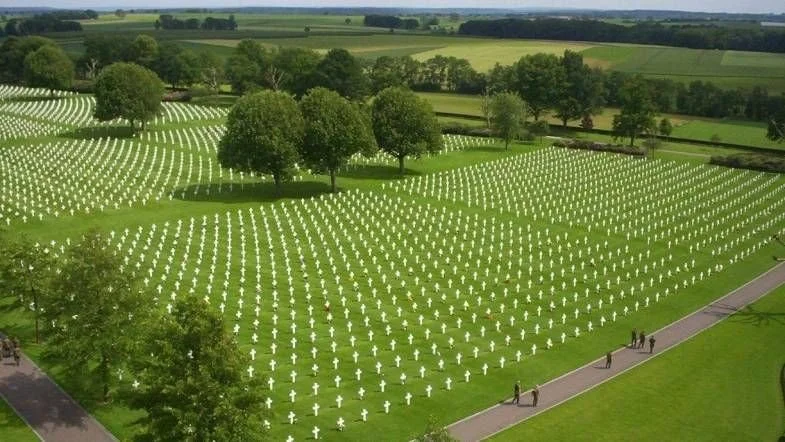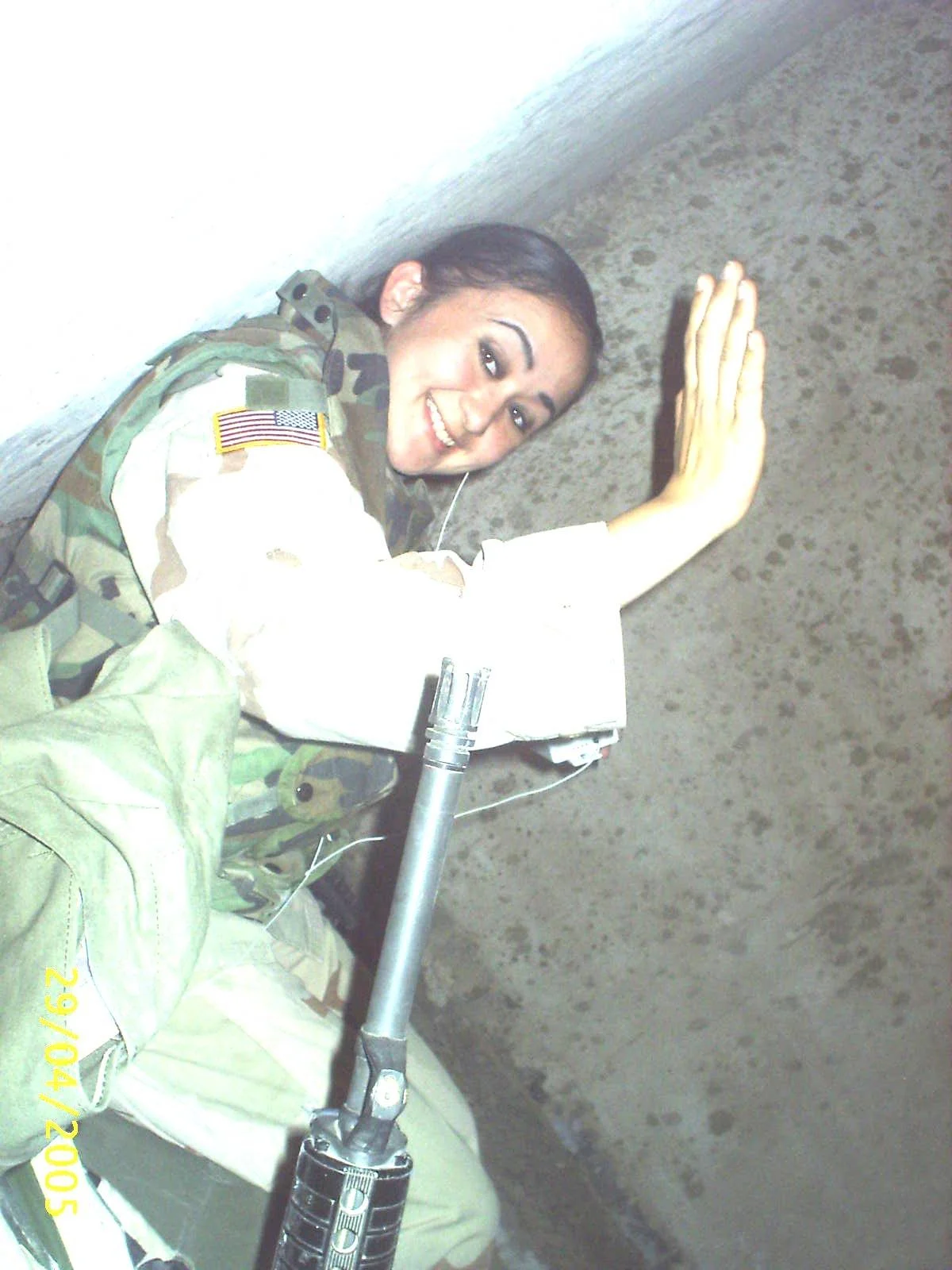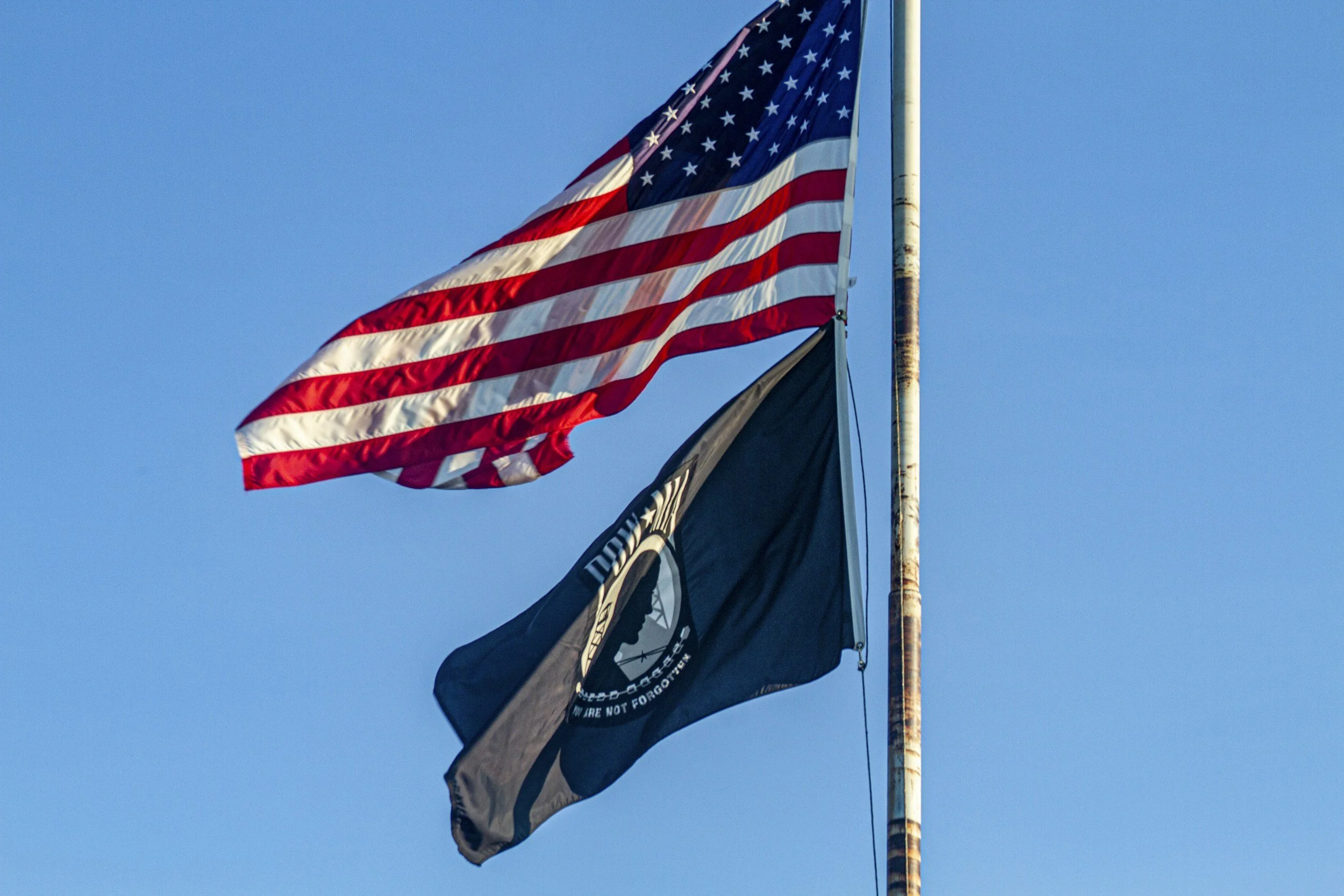An Echo of Absence on Veterans Day: The Erasure of Heroes and the Fraying of a Nation's Soul
American Cemetery | Margraten, Netherlands
In the quiet fields of the Netherlands, where memory is rooted as deeply as the ancient trees, a silence has descended. It is the sound of erasure, a hollow space where a story once stood. Plaques honoring the African American soldiers who fought and fell to liberate Europe from the grip of Nazism have been quietly removed from the U.S. military cemetery in Margraten just days before Veterans Day. This act, a sinister tear in the fabric of history, is more than an administrative decision; it is a spiritual wound, a shadow falling over the graves of servicemembers who gave everything for a nation that did not always love them back.
The story of the nearly one million African American military veterans in World War II is a paradox of valor and injustice. They crossed an ocean to fight for freedoms they were denied at home, their uniforms a testament to a promise of equality that remained unfulfilled. In segregated units, often relegated to support roles yet finding ways to distinguish themselves in the crucible of combat, they built the very ground upon which their fallen comrades would be laid to rest. Soldiers like Technician Fourth Class George H. Pruitt, who perished while saving another soldier, embodied a courage that transcended the color lines so brutally drawn by their own military.
Technician Fourth Class George H. Pruitt
Their fight did not end when the guns fell silent in Europe. These veterans returned not to ticker-tape parades alone, but to the familiar sting of bigotry. Yet, they carried the fire of liberation within them. The discipline, the dignity, and the defiant hope forged in war became the steel spine of the Civil Rights Movement. Veterans like Medgar Evers, his own honorable service a prelude to his martyrdom for equality, understood that the battle for America's soul was fought on two fronts: one against foreign tyranny, the other against the tyranny within.
A studio portrait of slain WWII veteran and civil rights activist Medgar Evers taken in the early 1960s. Hulton Archive | Getty Images
The tapestry of American service is not woven with a single hue; it is shot through with the colors and complexities of lives like Josephine Baker’s—a Bisexual African American woman who, even as she dazzled the world with her artistry, risked everything for freedom as a spy in the French Resistance. She stood for resilience at the March on Washington, her medals glinting beneath the sun, a living testament to those who breached boundaries of gender, race, and love. Today, the assault on her legacy, and on the lived truths of women, LGBTQ, Indigenous, and other marginalized veterans, has grown emboldened. Instead of recognition, these veterans face a crescendo of erasure—DEI programs gutted, intersectional histories swept away, their needs dismissed as inconvenient subplots in the story of American valor.
Josephine Baker at the March on Washington, 1963
It is not only an affront to justice, but a calculated act that mirrors the ambitions of those abroad who seek our discord—turning the American project inward, fracturing us along the familiar fault lines of bigotry and exclusion. This is not shame alone; it is a strategy, one that plays into adversaries’ hands by dissolving our unity, and consigning our most courageous stories to the corridors of forgetting.
To remove their stories is to dim the light of this legacy. It is an attempt to smooth over the complex, often painful, texture of our shared past. Under the Trump administration, with Defense Secretary Pete Hegseth at the helm of a crusade against diversity, this act of erasure is deliberate, part of a larger, more insidious pattern. We saw it when Medgar Evers’ own history was scrubbed from the Arlington National Cemetery website, a digital whitewashing of a hero’s sacrifice. We saw it in the removal of content honoring the Tuskegee Airmen, Women Pilots in WWII, and the Navajo Code Talkers—heroes whose contributions were so unique they became legends. Each deletion is a quiet violence, an attempt to craft a simpler, less challenging, and ultimately false narrative of who we are.
As a Chamorro combat veteran and a woman who has navigated the labyrinthine shadows of toxic leadership, I see these erasures not as isolated acts, but as threads pulled from the delicate, intricate tapestry of US history—threads that leave behind a frayed and diminished image. My own experiences in Iraq, under the weight of a white supremacist command in a disorienting, Kafkaesque environment, sharpened my understanding of justice and duty. There, in a space where truth was often bent into unrecognizable forms, I learned what it meant to fight for authenticity, to push back against forces that sought to stamp out plurality and impose a singular, oppressive narrative. These moments of reckoning shaped my resolve to uncover and preserve the stories that honor a collective truth, no matter how challenging or inconvenient they may be to those who cling to power.
As a young Sergeant on Team Lioness in Ar Ramadi, Iraq, 2005
This systematic erasure does not strengthen our nation; it atomizes it. It carves divisions into the bedrock of our collective memory, playing into the hands of adversaries who thrive on our disunity. By plucking these threads from our national tapestry, we are left with a story that is weaker, paler, and incomplete. We dishonor the dead and disinherit the living from the full, vibrant, and challenging truth of our history.
The plaques in Margraten were more than just metal and text. They were anchors of truth, testifying that the path to freedom was paved by people of all colors and backgrounds. They spoke of the journey from a segregated military to a more inclusive one, a journey that mirrored the nation's own halting steps toward justice. The official explanation—that the panels were part of a rotation—feels like a whisper against the roar of what is truly at stake. The removal of the panel specifically detailing racial segregation suggests this is not about rotating stories, but about silencing a specific, uncomfortable truth.
On this Veterans Day, we must not allow these echoes of absence to become the new narrative. The memory of these veterans is not a footnote to be toggled on and off at will; it is the heart of the matter. We owe it to George H. Pruitt, Medgar Evers, Josephine Baker, Miguel Trujillo, and the many other minority veterans to be vigilant custodians of their stories. We must insist that their memorials stand, not as relics of a past we wish to move beyond, but as eternal signposts on the road to a more perfect, and more honest, union. Their sacrifice was not in vain, and their memory must not be a casualty of yet another war against fascism that is currently dividing the nation.
If you believe in guarding these stories, and in standing with those who have served in the shadows and in the light, consider joining with the Veterans and Military Families (VMF) Caucus. Visit https://www.democratsabroad.org/vmf to learn more, lend your voice, and keep the flame of remembrance and justice burning bright for all who have worn the uniform.





